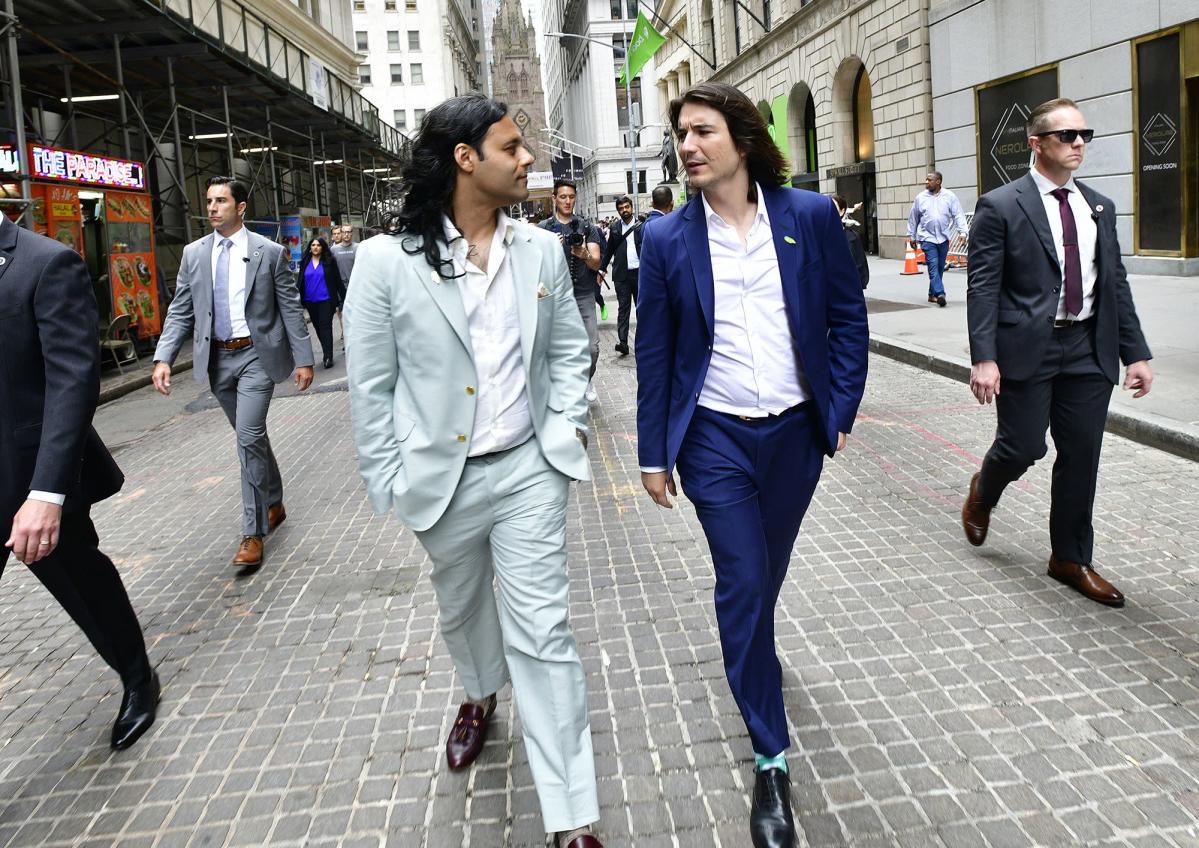
(Bloomberg) — Robinhood Markets Inc. shares slumped to a fresh low on Wednesday, giving the beleaguered brokerage a market value that’s less than the cash on its balance sheet.
After posting more than $3 billion of losses since its initial public offering in late July, Robinhood’s shares have plunged more than 80%, cutting its market capitalization to as low as $5.99 billion. The firm had $6.19 billion of cash and cash equivalents at the end of the first quarter.
At least two Wall Street analysts lowered their price targets on the stock this week after Robinhood reported disappointing metrics for May, reflecting a broader downturn in trading and upheaval in cryptocurrency markets as monthly active users plunged 39% from a year earlier. The firm is also trading at about 85% of its book value, down from more than 500% at the end of September.
“With customers returning to pre-pandemic behavioral trends and a potential recession ahead, user engagement seems likely to decline further,” Atlantic Equities analyst John Heagerty wrote in a note to clients. “Plummeting crypto valuations will have a direct impact on both volumes and order value.”
Heagerty downgraded Robinhood to the equivalent of sell and lowered his price target to $5 a share, a day after JPMorgan Chase & Co.’s Ken Worthington slashed his to $7 from $11. The stock slid 2.2% to $7.07 at 2:53 p.m. in New York, after dropping earlier to a record low of $6.87.
“A lot of guys who opened up accounts, acting on suggestions from Reddit, have gone away,” Piper Sandler & Co. analyst Rich Repetto, who has a neutral rating on the stock, said in a phone interview.
A spokesman for Menlo Park, California-based Robinhood declined to comment.
Robinhood’s founders, Chief Executive Officer Vlad Tenev and Chief Creative Officer Baiju Bhatt have fallen from the ranks of the world’s billionaires amid the rout. It has also dented the fortunes of crypto billionaire Sam Bankman-Fried, who recently acquired 7.6% of Robinhood’s outstanding shares. His stake is now worth about $400 million, roughly 40% less than when the initial investment was disclosed in May.
Earlier this month, Securities and Exchange Commission Chair Gary Gensler said he asked staff to consider an overhaul to US equity markets that could threaten a key source of Robinhood’s revenue. Equity order flow payments — transactions that could be under threat if the SEC moves forward with major changes — made up about 12% of the company’s revenue in the first quarter.
Robinhood was a central figure in last year’s meme-stock mania, when hordes of individual investors banded together on Reddit to bid up shares of GameStop Corp. and others. The episode forced Robinhood to limit certain trades and raise capital to cushion against future volatility. The company’s executives have noted its strong cash position and credit lines.
Wall Street sees more losses ahead, which could erode Robinhood’s cash pile.
The firm is expected to post a $314 million loss for the second quarter ended June 30 and more than $1.25 billion for the full year, according to the average estimate of analysts surveyed by Bloomberg.
©2022 Bloomberg L.P.